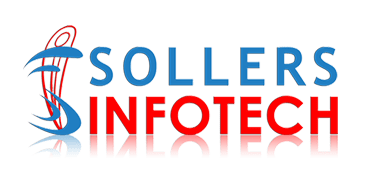Interoperability of EMR’s
EMR interoperability refers to the ability of different Electronic Medical Records (EMR) systems to exchange and use patient data seamlessly. Here is some information about EMR interoperability solutions, benefits, and its importance in healthcare:
EMR Interoperability Solutions:
1. Health Information Exchange (HIE): HIE is one of the EMR Interoperability Solutions which enables the sharing of patient data across different healthcare organizations and systems. It allows secure exchange of information such as medical records, lab results, and imaging reports.
2. Standards and Protocols: Adoption of common technical standards and protocols, like HL7 (Health Level Seven) and FHIR (Fast Healthcare Interoperability Resources), helps in standardizing data formats and facilitating interoperability between Electronic Medical Records (EMR) systems.
3. Application Programming Interfaces (APIs): APIs enable systems to communicate with each other by providing a set of rules and protocols. Electronic Medical Records (EMR) systems can use APIs to securely exchange patient data and integrate with other healthcare applications offering EMR interoperability.
4. Data Integration and Middleware Solutions: Middleware software can bridge the gap between different Electronic Medical Records (EMR) systems by translating and mapping data from one system to another, ensuring seamless interoperability.
EMR Interoperability Benefits:
1. Continuity of Care: Interoperability allows healthcare providers to access comprehensive patient records, including medical history, medications, allergies, and test results, ensuring continuity of care during care transitions.
2. Care Coordination: Interoperable EMRs enable better care coordination among multiple providers, reducing duplicate tests, improving communication, and avoiding medical errors.
3. Efficiency and Workflow Improvement: Interoperability streamlines administrative tasks, eliminates manual data entry, and enables efficient sharing of patient information. This saves time, reduces paperwork, and enhances overall workflow.
4. Improved Patient Safety: Access to complete and accurate patient information helps healthcare providers make informed decisions, leading to better patient safety and reduced medical errors.
5. Enhanced Patient Engagement: Interoperability empowers patients by providing them access to their own health information. Patients can actively participate in their care, make informed decisions, and share records with other providers.
6. Population Health Management: Interoperable EMRs contribute to population health management by aggregating and analyzing data across diverse sources. This enables healthcare organizations to identify health trends, target interventions, and improve public health outcomes.
Interoperability in Healthcare:
Interoperability in healthcare plays a vital role by connecting different systems and enabling seamless data exchange. Interoperability in healthcare promotes collaboration among healthcare providers, improves patient care, enhances research capabilities, and supports the development of innovative healthcare solutions.
However, achieving full interoperability in healthcare is an ongoing challenge due to technical complexities, varying standards, and privacy concerns. Efforts are underway to establish standardized frameworks and regulations to promote interoperability and ensure secure data exchange across healthcare systems and organizations.
Interoperability is a complex issue, but it is essential for improving the delivery of healthcare. We at Sollers Infotech specializes in developing custom EMR software for the healthcare industry which are Interoperable with other healthcare systems.





